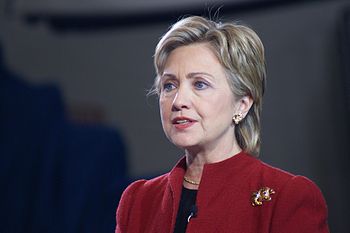
On April 1, Fox Business Network’s John Stossel hosted a debate featuring three candidates — Gary Johnson, John McAfee and Austin Petersen — for the Libertarian Party’s 2016 presidential nomination (a fourth, more radical libertarian, Darryl W. Perry was unfortunately excluded). Those seeking an alternative to America’s failed political system, in which one party masquerades as two and the range of respectable political opinion covers perhaps five degrees of a 360-degree circle, might do well to consider voting Libertarian this November.
One common accusation leveled against libertarians — those affiliated with the Libertarian Party and those who hang with other parties or eschew political activity altogether — is that we’re “isolationists” because we oppose US intervention in foreign conflicts.
The standard libertarian retort to that criticism is that we support, as Thomas Jefferson put it, “friendship and commerce with all nations, entangling alliances with none,” where real isolationists have historically opposed not just foreign wars but foreign commerce, calling for protectionist trade and immigration policies (which libertarians oppose) to “protect American jobs.”
All three candidates had good responses to foreign policy questions, but I was particularly intrigued by John McAfee’s take on the “i-word.”
“I think isolationism,” McAfee says, “is taking on the role of world policeman, making us a separate entity from the rest of the world. We’re the policemen and you guys are the people that we police. … Dropping bombs on families where mothers and fathers are killed, or brothers and sisters. I would be angry too. You would be angry too. So it is not isolationism to say that we need to bring our troops home, or that we need to stop interfering in the affairs of foreign nations. It is reality and practicality.”
Kind of refreshing, isn’t it? After 25 years of continuous war in the Middle East, the “major” parties continue to mainly offer up candidates who supported the US invasion of Iraq (Hillary Clinton), who want to know if sand glows in the dark (Ted Cruz), or who admit the Iraq war was a mistake but don’t seem to have learned anything from that mistake (Donald Trump).
Those candidates, with their Caligula-style approach to foreign policy — “let them hate us so long as they fear us” — are the real isolationists.
Libertarians, on the other hand, want to make America once again a peaceful member of the community of nations — a leader rather than a menace. Let’s take them up on it.
Thomas L. Knapp (Twitter: @thomaslknapp) is director and senior news analyst at the William Lloyd Garrison Center for Libertarian Advocacy Journalism (thegarrisoncenter.org). He lives and works in north central Florida.
PUBLICATION/CITATION HISTORY
- “Libertarians versus National Isolation,” by Thomas L. Knapp, Ventura County, California Citizens Journal, 04/05/16
- “Libertarians versus National Isolation,” by Thomas L. Knapp, Newberry, South Carolina Observer, 04/05/16
- “Libertarians versus National Isolation,” by Thomas L. Knapp, Pahrump Valley, Nevada Times, 04/06/16


